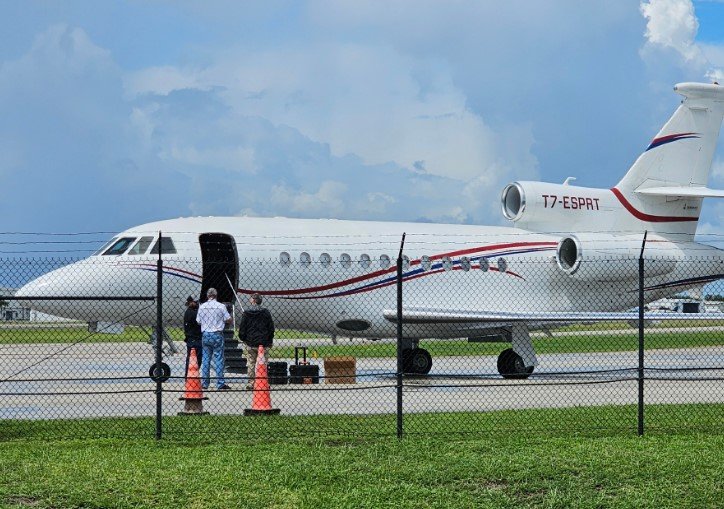In a significant move, federal authorities in the United States have seized a plane regularly used by Venezuelan President Nicolás Maduro. The aircraft, a Boeing 747, was confiscated as part of ongoing efforts to pressure the Maduro regime, which has been accused of numerous human rights violations and corruption. This seizure marks a notable escalation in the U.S. government’s actions against the Venezuelan leadership.
The Seizure and Its Implications
The seizure of the plane, which took place at a U.S. airport, has sent shockwaves through diplomatic circles. The aircraft, often used by Maduro for international travel, is seen as a symbol of his regime’s power and influence. By confiscating it, the U.S. aims to disrupt Maduro’s ability to conduct state affairs and signal its commitment to holding his government accountable.
This action is part of a broader strategy by the U.S. to isolate Maduro and his inner circle. Sanctions have been imposed on key figures within the Venezuelan government, and assets have been frozen to limit their financial capabilities. The seizure of the plane is a tangible demonstration of these efforts, highlighting the lengths to which the U.S. is willing to go to pressure the regime.

The implications of this seizure are far-reaching. It not only affects Maduro’s ability to travel but also serves as a warning to other officials within his government. The message is clear: the international community is watching, and there will be consequences for actions that violate human rights and democratic principles.
Reactions from Venezuela and Beyond
The Venezuelan government has condemned the seizure, calling it an act of aggression and a violation of international law. In a statement, Maduro’s administration accused the U.S. of attempting to destabilize Venezuela and undermine its sovereignty. The rhetoric from Caracas has been defiant, with officials vowing to resist what they see as imperialist interference.
International reactions have been mixed. Some countries and organizations have expressed support for the U.S. action, viewing it as a necessary step to hold Maduro accountable. Others, however, have criticized the move, arguing that it could exacerbate tensions and hinder diplomatic efforts to resolve the crisis in Venezuela.
The seizure has also sparked debate within the U.S. Some lawmakers have praised the action as a bold and necessary measure, while others have raised concerns about its potential repercussions. The discussion reflects the broader complexities of U.S. foreign policy towards Venezuela, where balancing pressure with diplomacy remains a challenging task.
The Broader Context
The seizure of Maduro’s plane is the latest development in a long-standing conflict between the U.S. and Venezuela. Relations between the two countries have been strained for years, with the U.S. consistently criticizing Maduro’s government for its authoritarian practices and economic mismanagement. The situation in Venezuela has led to widespread poverty, political repression, and a humanitarian crisis that has displaced millions.
Efforts to resolve the crisis have included diplomatic negotiations, economic sanctions, and support for opposition leaders. The U.S. has recognized opposition leader Juan Guaidó as the legitimate president of Venezuela, further complicating the political landscape. The seizure of the plane adds another layer to this complex and evolving situation.
As the international community continues to grapple with the crisis in Venezuela, actions like the seizure of Maduro’s plane underscore the high stakes involved. The path forward remains uncertain, with the potential for both escalation and resolution. What is clear is that the situation in Venezuela will continue to be a focal point of international attention and action.
